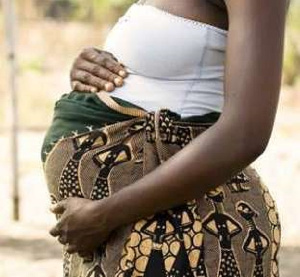The Tema Metropolitan Health Directorate has revealed that about 86 percent of adolescent pregnancies in Tema are caused by men between 20 and 39-years-old.
Doris Ocansey, the Adolescent Health Advocate for the Tema Metropolitan Health Directorate, disclosed this in an interview with the Ghana News Agency (GNA).
She said her outfit’s conclusion was based on research into the background of the men impregnating these girls in the metropolis, especially Tema Manhean.
Ms. Ocansey said, “We collected the data so that we can also focus on the adults since they are impregnating the girls.”
She said that looking at the age difference between the two parties, it was obvious that adolescent girls could not demand the use of condoms to prevent pregnancies.
The data also revealed that most of the pregnant girls were junior high school graduates.
Ms. Ocansey cautioned the men to leave the adolescent girls alone to enable them to focus on their education and careers instead of impregnating them at a tender age.
She indicated that between January and December 2023, a total of 355 pregnant adolescents between the ages of 10 and 14 and 331 between the ages of 15 and 19 years were enrolled in the safety net programme in the municipality.
She explained that the programme helps health officials track and follow the pregnancy until delivery.
“For some of the girls, this was not their first pregnancy, but their second or third. We want to stop that, so if you make the mistake of getting pregnant, you won’t have to fall back into it again,” she said.
She explained that the safety net programme was aimed at reducing repeated pregnancies among adolescents, reducing maternal mortality and mobility, and increasing post-partum family planning.
Ms. Ocansey said out of the number enrolled, 42 were in school before they got pregnant, indicating that four were in primary school, 26 in junior high school, and 12 in senior high school.
She said that to ensure the girls do not wander after delivery and engage in transactional sex, they help them decide whether they would want to go back to school or engage in trade.
She said that at the end of December 2023, 108 of the girls had decided to return to school after delivery; 146 had also opted to acquire vocational training; 30 wanted to go into trading; and 37 were undecided on the path they wanted to take after delivery.
Latest Stories
-
Galamsey has left our river deities powerless – Fetish Priest laments
11 mins -
It was unfair to destroy Leslie’s Fantasy Dome – Okraku-Mantey
15 mins -
Expired rice scandal: We won’t jeopardize people’s health or safety for any reason – FDA
20 mins -
UniMAC to host public forum on democracy and communication
39 mins -
Expired Rice Scandal: Ablakwa slams Lamens Company for “Criminal” acts
51 mins -
Avoid the use of vituperative expressions in your campaigns – NCCE
58 mins -
No petroleum revenue allotment to industrialisation in first half of 2024 – PIAC report
1 hour -
Baba Sadiq motivated me to vie for MP position – Okraku-Mantey
1 hour -
“Black Stars failure to qualify for AFCON 2025 a big blow” – Ibrahim Tanko
2 hours -
NPP’s campaign is going very well – Nana Akomea
2 hours -
Employees must file annual income tax returns – Ghana Revenue Authority
2 hours -
Does the Police law empower police to run a broadcasting service?
3 hours -
GFA dissolves Black Stars Management Committee after AFCON qualification disappointment
3 hours -
The Thomas Partey Tournament: Empowering Ghana’s Youth through football
4 hours -
Nana Akomea calls for public inquiry into ‘expired rice’ saga
4 hours

